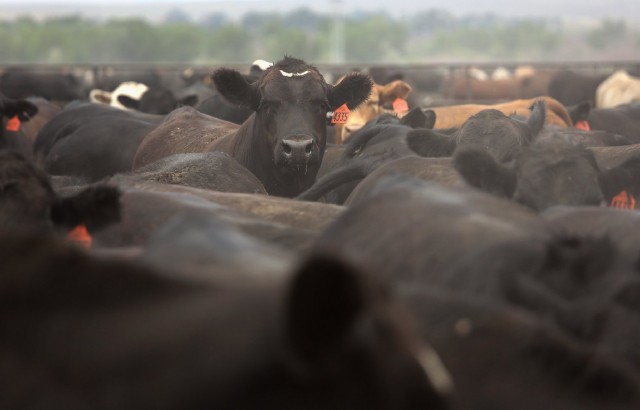
Updated 5:20 p.m.: A federal grand jury has indicted Rancho Feeding Corp., the Petaluma slaughterhouse at the center of a massive beef recall, for processing animals condemned by U.S. Department of Agriculture inspectors and processing others that were known to have eye cancer.
The indictment, dated last Thursday and embedded below, charges Rancho co-owner Jesse J. Amaral Jr. and two workers, foreperson Felix Sandoval Cabrera and yardperson Eugene D. Corda, with 11 felony counts, including distribution of adulterated and misbranded meat, mail fraud and conspiracy. Amaral pleaded not guilty during a Monday morning hearing and was released on $50,000 bail. The status of Cabrera and Corda is still pending.
In a filing Monday, prosecutors informed U.S. District Court Judge Charles Breyer that Rancho's co-owner, Robert Singleton, will be indicted on a single count of distributing adulterated, misbranded and uninspected meat. The filing says the U.S. Attorney's Office anticipates that Singleton will plead guilty and cooperate with prosecution of the other Rancho defendants. The main indictment, which does not name Singleton as a defendant, refers to him only as "R.S."
The indictment alleges that Amaral and R.S. directed employees to circumvent inspection procedures for cows that exhibited signs of epithelioma, including lumps and other abnormalities around the eyes, from mid-2012 until January 2014.
According to the indictment, Cabrera, the foreperson, swapped uninspected cows for cattle that had already passed inspection and were awaiting slaughter. Then employees slaughtered the cancerous cattle and deposited their heads in a gut bin, the indictment says. Employees then allegedly placed the heads from apparently healthy cattle next to the carcasses of the diseased cattle during the inspectors' lunch breaks.